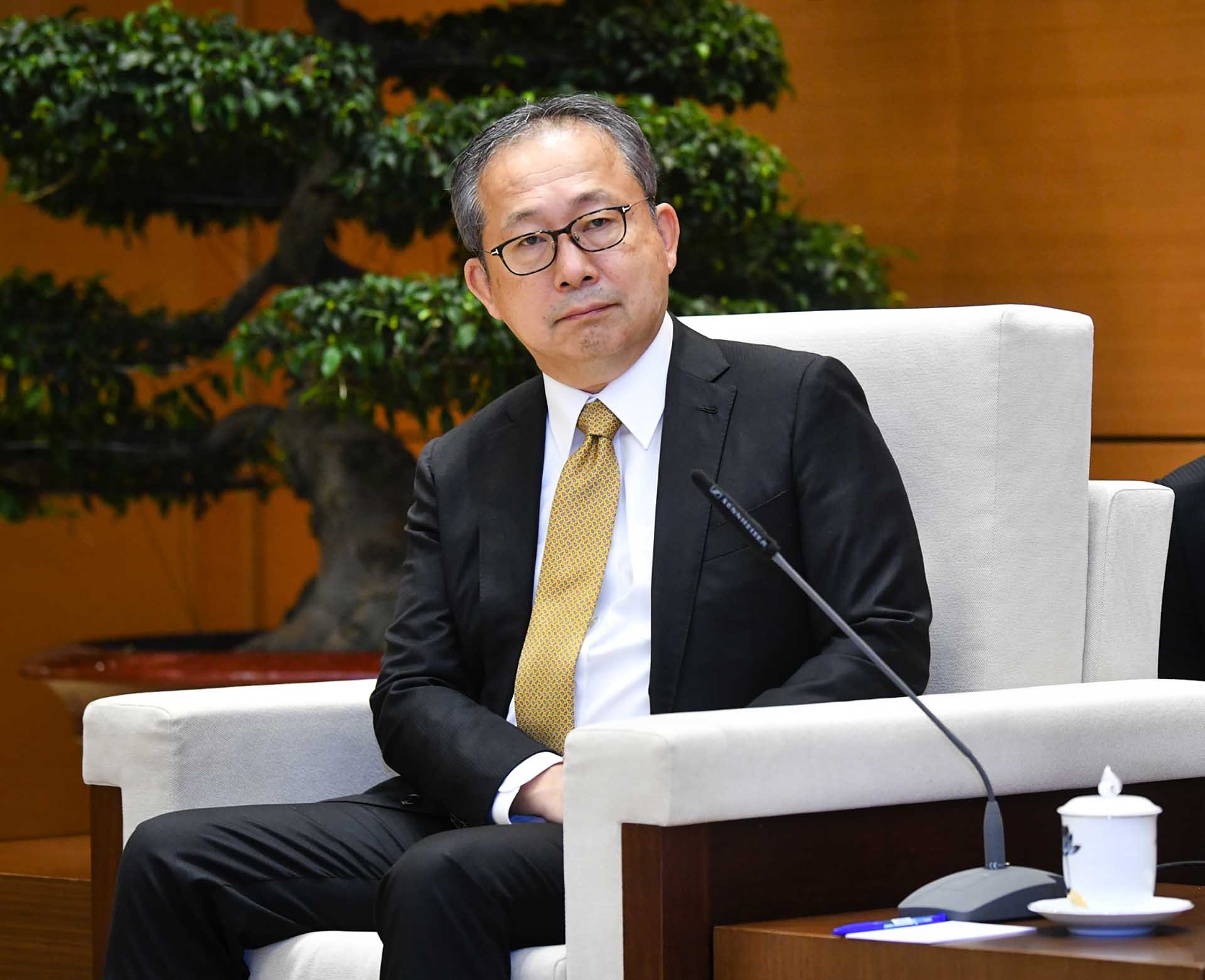
Ambassador of Japan to Vietnam
The case for Vietnam's invitation to G7 Summit: Ambassador's interview to WVR
Latest
 |
| Ambassador of Japan to Vietnam Yamada Takio. (Photo: WVR) |
Vietnam is one of the eight countries invited to participate in the expanded G7 Summit in Japan. Dear Ambassador, in your opinion, why was Viet Nam chosen, from both bilateral and multilateral perspectives?
Japan invited Vietnam to attend the expanded Group of Seven (G7) Summit because your country is an important, essential partner in Japan’s goal of realizing the vision of a Free and Open Indo-Pacific region (FOIP). In addition, Vietnam has the determination and capability to contribute positively to addressing key global issues in the upcoming G7 Summit in Hiroshima, Japan.
Among ASEAN members, only Indonesia, ASEAN’s rotating President for 2023, and Vietnam were invited to participate in the expanded Summit. Aside from Vietnam, only Brazil, South Korea and Australia were invited to G7 without being President of a forum or a regional/global cooperative mechanism. Therefore, I believe that you have partially understood the emphasis that Japan places on its cooperative relationship with Vietnam.
Moreover, Japan and Vietnam have agreed to upgrade its currently widened, deepened Strategic Partnership to a higher level this year, after the online senior dialogue on February between Prime Minister Kishida Fumio and General Secretary Nguyen Phu Trong.
Again, Vietnam’s invited participation in the upcoming expanded G7 Summit can be another milestone for upgrading the partnership between the country and Japan to a new level, as well as serving as a driving force for this entire process.
What is your assessment on Vietnam’s efforts and determinations in addressing global issues?
I want to reaffirm that Japan’s invitation to Vietnam of attending the expanded G7 Summit in Hiroshima shows that your country is an important, essential partner in Japan’s goal of realizing the vision of a Free and Open Indo-Pacific region (FOIP).
It also demonstrates Japan’s high regards for Vietnam’s determination in its efforts of contributing proactively, positively to addressing ongoing global concerns.
At this expanded G7 Summit in Hiroshima, climate change is forecasted to be a closely discussed topic, as it is considered to be an issue of top priority that requires strong consensus and actions of the international community.
I hope that on the framework of the Summit, your country, once exhibited its strong political commitments related to this issue through the Government of Vietnam’s goal of reaching zero carbon emission by 2050… will contribute positively to the discussion of climate change.
 |
| Deputy Foreign Minister Tran Luu Quang with leaders of Vietnamese ministries, agencies and Japanese representives at the “Vietnam-Japan Economic Forum 2023” in Hanoi, February 15th, 2023. |
It can be said that Vietnam – Japan economic cooperation is a successful example of the former’s efforts in international economic integration. What is your opinion on this statement?
Through its deepening integration into the global economy, Vietnam has continued to expand its imports, positively attract foreign investments and sign numerous trade agreements, specifically the Comprehensive and Progressive Agreement for Trans-Pacific Partnership (CPTPP), with higher requirements in market accesses and economic-based principles.
Reflecting such efforts from Vietnam, since CPTPP came into effect in 2018, Japan-Vietnam trade relations have increased significantly. During the first half of 2022, exports from Vietnam to Japan reached 11.3 billion USD, while imports were 12 billion USD (during the first half of 2018, bilateral imports and exports were 8.8 billion USD. In addition, Japan’s investment in Vietnam has expanded significantly in accumulated investment capital, even though it has decreased for a bit through the years due to the COVID-19 pandemic.
Therefore, Vietnam’s active participation in the free, fair, rules-based multilateral system as well as the country’s promotion of economic integration with the global economy through trade and partnership agreements will help Vietnam strengthen its presence in the global value chain. In addition, the country’s improvement of the investment environment to meet international standards, expansion of trade and foreign investment attraction will significantly contribute to Viet Nam’s future economic development.
What is your evaluation of Vietnam’s potential in its transition toward building a green energy, clean energy, green economy and digital economy?
Currently, climate change has been among the most significant global issues. In the upcoming G7 Summit in Hiroshima hosted by Prime Minister Kishida Fumio, this is forecasted to be a major topic of discussion between leaders and a concern of the entire international community.
Vietnam is also facing this issue. While the economy continued to grow steadily recent years, many natural disasters, considered to be resulted from climate changes, have continued to rage on every year. As a result, at the 26th United Nations Climate Change Conference (COP), your Prime Minister Pham Minh Chinh had announced Viet Nam’s strong commitments in having zero carbon emission by 2050. In order to meet its goal, Viet Nam is currently accelerating green transition as an important Government policy in order to promote the development of green energy, clean energy and green economy.
The Japanese Government is also supporting its Vietnamese counterpart’s focusing efforts in energy transition of using biomass, hydrogen, ammonia and CCUS through “Asia Zero Emission Community (AZEC)”, in accordance with Vietnam’s pace of economic development. Furthermore, Japan is cooperating with partners in carbon removal using recycle energy, etc. through “Just Energy Transition Partnership (JETP)”.
Regarding digital transformation, I know that a lot of Vietnamese companies have succeeded in the Information Technology (IT) sectors through their strengths in abundant source of young, talented scientists, mathematicians and IT engineers, along with positive business mindset, etc.
For example, digital transformation in manufacturing: The combination of software coded by Vietnam’s IT engineers and Japan’s strong manufacturing industries can become a new form of cooperation between the two countries.













